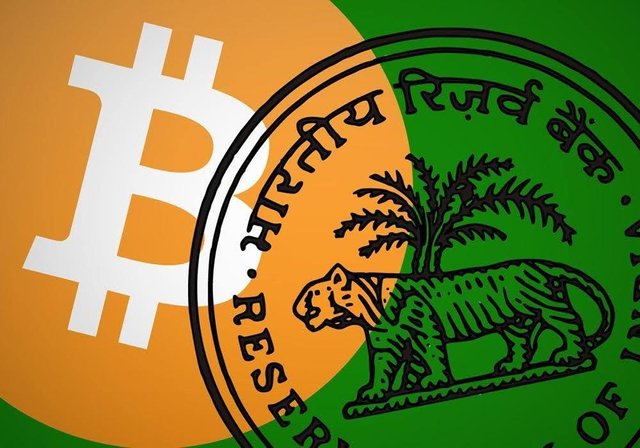Bitcoin And The Indian Government

Indian Government Mulling Legalising Bitcoin Cryptocurrency In India
From exercising caution over Bitcoin cryptocurrency, the Government of India could finally be moving towards compliance.
As per a recent CNBC India report, a committee of finance ministry officials, IT ministry officials, NITI Aayog, and Reserve Bank officials, may be inching closer to legalizing virtual currencies in India.
The Inter-Disciplinary Committee’s report is expected to be announced by the end of July, after which the Securities and Exchange Board of India (SEBI) may be asked to step in to regulate transactions.
So, if Bitcoins are legalised in India, the following would happen:
Bitcoins would fall under the purview of RBI’s 1934 Act.
Bitcoin investors would be taxed.
RBI would issue guidelines regarding investment and purchase of Bitcoins.
If any foreign payment is made through Bitcoins, it would fall under the purview of FEMA Act.
Returns from investment in Bitcoins would be taxed.
Interestingly, the news comes around the same time when the Bitcoin trade analyst, Chris Burniske, highlighted that trades from India accounted for 10% of global cryptocurrency trade, in May.
He tweeted a chart tracking cryptocurrency trades that show India accounted for 16,754.76 coins by trade volume. It has also been ranked fourth on the Bitcoin cryptocurrency trading market.
bitcoin-india-cryptocurrency-government
But sample this. While India still mulls over legalising cryptocurrency, China’s central bank — the People’s Bank of China — has already developed a prototype of a cryptocurrency that it could end up circulating it in the near future. It would be introduced alongside the China’s primary currency, the renminbi or the yuan. China will be simulating possible scenarios and running mock transactions using the cryptocurrency with some commercial Chinese banks.
Bitcoin And The Indian Government
Over the past few years, despite the lack of regulations in the Indian digital currency industry, a few Bitcoin exchanges have sprung up and started operating with self-regulated trading platforms with strict Know Your Customer (KYC) and anti-money laundering systems in place. These include startups like Zebpay, Coinsecure and Unocoin.
These startups have also raised funding from investors and have slowly been building faith in the Bitcoin and digital currency sector despite skepticism from the government.
From exercising caution over Bitcoin cryptocurrency, the Government of India could finally be moving towards compliance.
As per a recent CNBC India report, a committee of finance ministry officials, IT ministry officials, NITI Aayog, and Reserve Bank officials, may be inching closer to legalizing virtual currencies in India.
The Inter-Disciplinary Committee’s report is expected to be announced by the end of July, after which the Securities and Exchange Board of India (SEBI) may be asked to step in to regulate transactions.
So, if Bitcoins are legalised in India, the following would happen:
Bitcoins would fall under the purview of RBI’s 1934 Act.
Bitcoin investors would be taxed.
RBI would issue guidelines regarding investment and purchase of Bitcoins.
If any foreign payment is made through Bitcoins, it would fall under the purview of FEMA Act.
Returns from investment in Bitcoins would be taxed.
Interestingly, the news comes around the same time when the Bitcoin trade analyst, Chris Burniske, highlighted that trades from India accounted for 10% of global cryptocurrency trade, in May.
He tweeted a chart tracking cryptocurrency trades that show India accounted for 16,754.76 coins by trade volume. It has also been ranked fourth on the Bitcoin cryptocurrency trading market.
Scope Of Bitcoins and Cryptocurrency
With the government legalising it, Bitcoin service providers will also be able to expand the scope of usage. Currently, Bitcoins are used to make purchases through mobile apps, buy gift vouchers, for airtime top up, and for paying bills. But in the future, an improved infrastructure would help support remittances to India and also provide online financial solutions for the country’s unbanked and underserved population.
Bitcoin makes it extremely easy to send a small remittance back home which could save up to billions in fees paid to third parties for a country like India, which is the world’s largest remittance market at over $60 Bn annually.
For India, the time is ripe to leverage the Bitcoin revolution. Especially when Bitcoin prices are surging through the roof. Last month, Bitcoin broke all its previous records when it achieved a new milestone. The value of Bitcoin reaching $2,000 per coin for the first time in history.
The reason for this achievement? Japan legalised the currency in mid-March this year. Thus unleashing a spike in Bitcoin trade which not only impacted the Bitcoin price in Japan but also led to a surge in global prices.
Today, Block.one, a developer of blockchain technologies for businesses will launch the sale of a new blockchain-based digital currency or token called EOS. The sale is the latest capital-raising exercise by a technology startup creating its own digital currency and selling tokens to the public (also known as an ICO or Initial Coin Offering). The company wants EOS to be used by large businesses, enabling corporations to automate processes, monitor assets, and create multiple applications.
Article Credits: https://www.google.co.in/amp/s/inc42.com/buzz/bitcoin-cryptocurrency-india-government/amp/
Congratulations @thenomadictales! You have completed some achievement on Steemit and have been rewarded with new badge(s) :
Click on any badge to view your own Board of Honor on SteemitBoard.
For more information about SteemitBoard, click here
If you no longer want to receive notifications, reply to this comment with the word
STOP